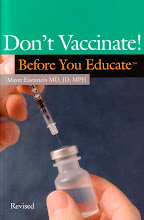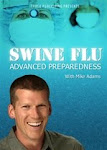 Rinse-free hand sanitizers are, by definition, intended for degerming skin without the aid of rinsing with soap and water. This type of product has steadily gained popularity in schools and public facilities to prevent the flu. However, the risks of using such hand sanitizers far exceed the benefits as most have carcinogenic and immune suppressing compounds.
Rinse-free hand sanitizers are, by definition, intended for degerming skin without the aid of rinsing with soap and water. This type of product has steadily gained popularity in schools and public facilities to prevent the flu. However, the risks of using such hand sanitizers far exceed the benefits as most have carcinogenic and immune suppressing compounds.Health agencies across the world have annouced a need for immediate and persistent protection from harmful microbes and viruses, especially those considered by world health officials as imminent threats such as the H1N1 flu. Yet, the solutions proposed for antiseptic preparations are often deadlier than diseases themselves and at a detriment to long-term health.
This is especially a concern when it comes to their promotion in schools and public facilities which cater to millions of children. “Our plan is to give students safe topical protection that is easily accessible and prevents germs from spreading,” stated Charolette Dubois, a public health nurse in Montreal. Dubois said she considers most hand sanitizers safe, although she admits never actually looking at the ingredients.
Many brands of sanitizers contain more than 60 percent alcohol, the same type found in alcoholic drinks, but others are made with isopropyl alcohol, which can be fatal, even in small doses if children ingest it....











.bmp)
No comments:
Post a Comment